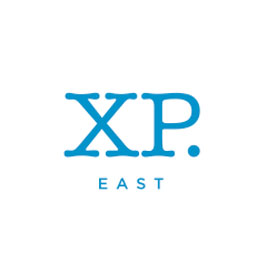
As parents and students are already aware, we operate a ‘Bring Your Own Device’ (BOYD) policy at XP East. Around 50% of students bring their own personal laptops or tablets to school, and we also have a number of Google Chromebooks for students to use. These devices (including student mobile phones) are connected to XP School’s wifi system – but they are not allowed to use their devices for non-educational purposes.
Each student has an XP East safe and secure Google account for Gmail, Calendar, Google Drive (with online unlimited storage) and other apps.
Although we have only been open for 4 months, we are already using such devices to create learning opportunities that can amplify and positively influence the progress that students make. For instance, our first expedition ‘Society, Steam and Speed’ had its own dedicated Google site which was made publicly available on the internet, and was linked to our main school website. This allowed me to create sections for the relevant case studies that accompanied our guiding question and contained learning materials from lessons, and other resources to support their learning in and out of the classroom.
To highlight this, Case Study 1 contained rubrics to support the assessment process, videos from our fieldwork to York Railway Museum and Malham, and summary diagrams on our work on ‘What makes a successful community?’. Furthermore, with the help of an iPad Pro, an Apple Pencil and the Explain Everything App, I was able to personally create 6 tutorial videos (eg: here, here and here) that could support those who needed extra tuition, as well as develop more complex learning points. Mr Smith also created tutorial videos for STEM on ‘force variables that can affect a train journey‘, and ‘weight vs mass’.
We also created an ‘Explore Further’ section that contained video links for students to watch in their personal time, and I was delighted to hear about how some of them watched them with family members!
Our ‘Literacy Support’ section contained several ‘Padlets‘ that allow myself, Mrs Poncia, Mrs Duffield and Mrs Parker to quickly take photos of effective examples of student work, and then post them onto a Padlet Wall – allowing the rest of the class to access them in a matter of seconds – providing such models is a great teaching technique when learning anything new. Padlet is such a powerful tool that I intend to blog about it later.
Imagine using such approaches of tutorial videos created by teachers, providing real time models of success, the use of Google Apps etc during the GCSE period?
I believe that we are laying the foundations for redefining new possibilities, and we’re only 4 months in!
P.S We’re recruiting for teachers
